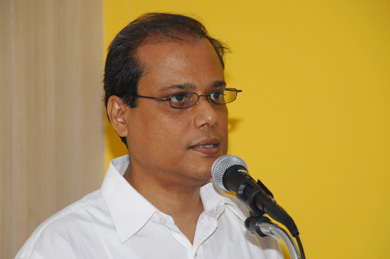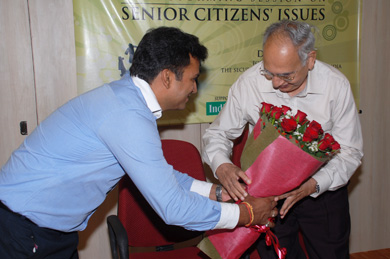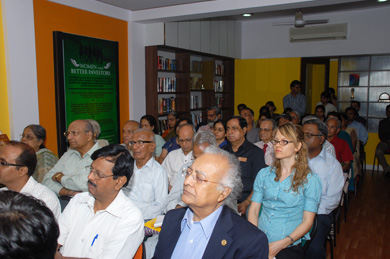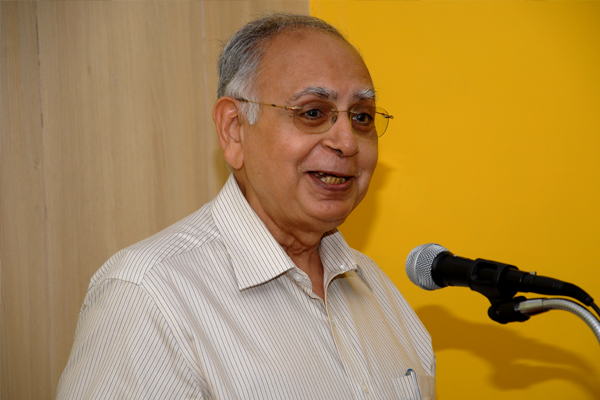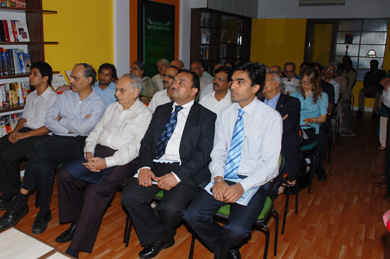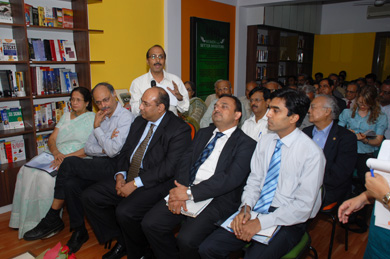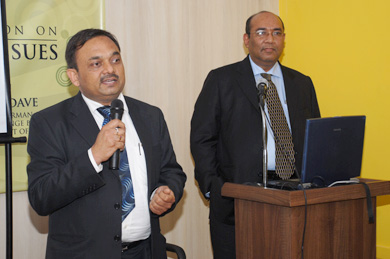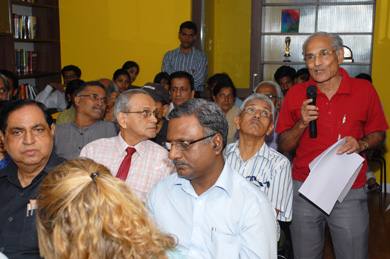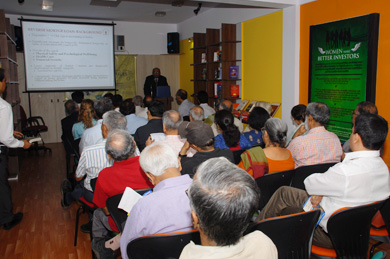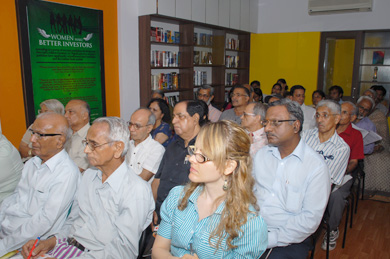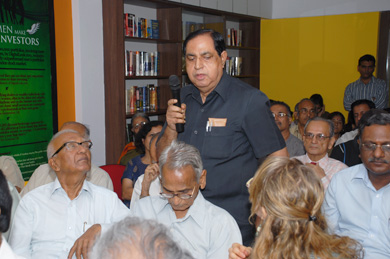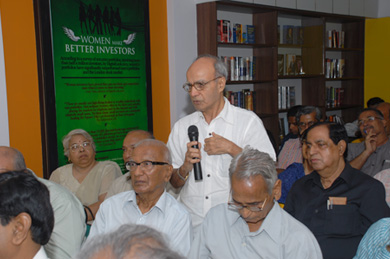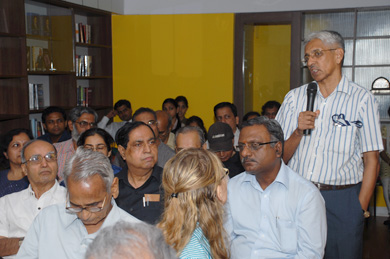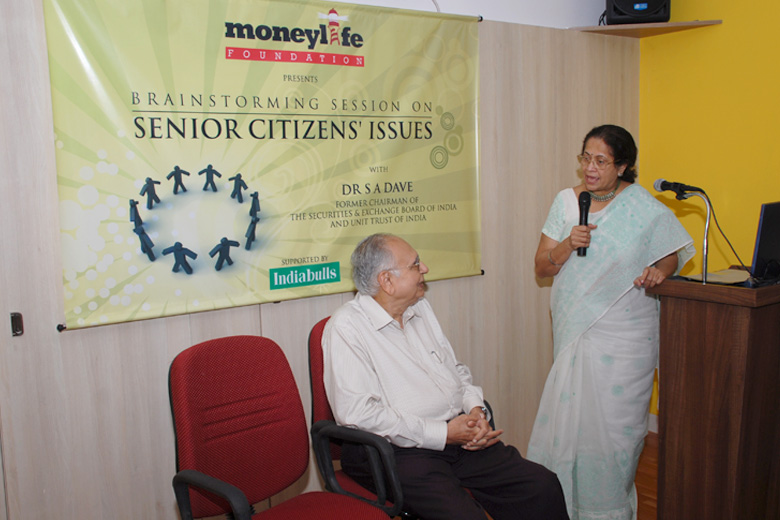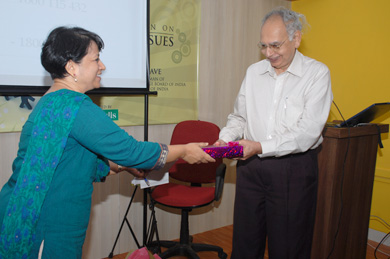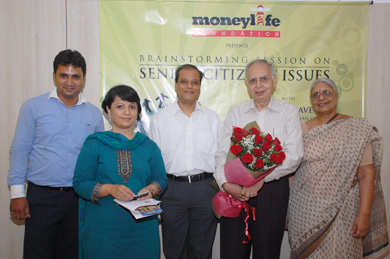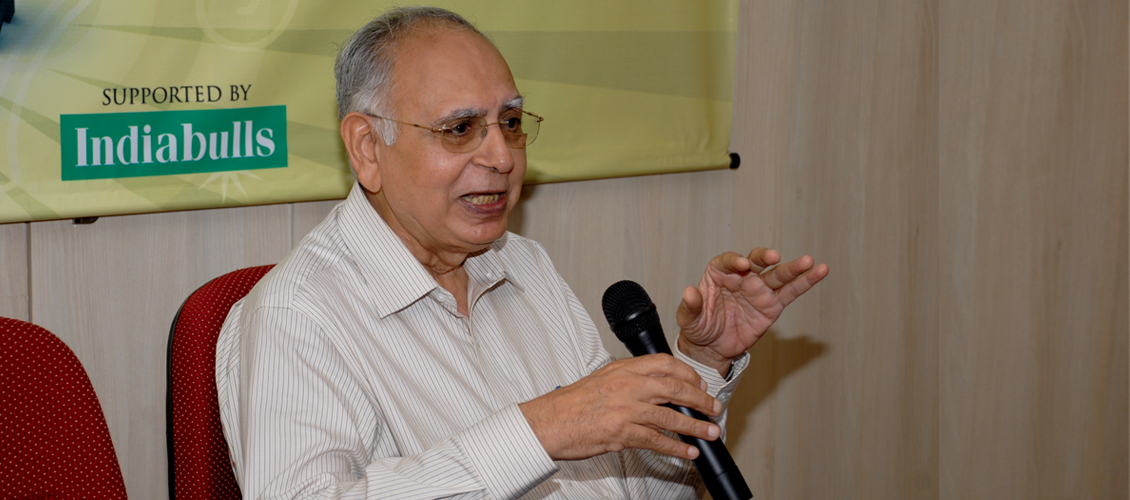
Speaking at the Moneylife Foundation brainstorming session on senior citizens’ issues on Friday, Dr S A Dave (former chairman of SEBI, UTI and the committee on pension reforms) said that retirement planning needed to start earlier and it required attitudinal change, even on the part of senior citizens to relinquish dependency. On a personal note, he said, that the 60-plus age group is often referred to as the ‘silvers’ but he personally considers this a ‘golden’ period of his life, despite having gone through the usual medical issues including knee replacements, bypass surgery and cataract operations.
“We should start enrolling people as members of senior citizens not when they become the prescribed age of a senior citizen but when they become 45 years,” Dr Dave said. He said that we must emulate the US All American Retirement People (AARP) like system where its massive membership allows it to run its own insurance policy, pharmacy, hospices and also had powerful lobbying power with the government.
A change in attitude and good financial advice could help senior citizens could plan for regular post-retirement income that was also tax-free. He advised NGOs who attended the meeting to work jointly to be able to lobby effectively for specific actions and concessions but also work together to ensure a large membership that could put in place—facilities such as insurance, healthcare, hospices and other facilities there was independent of the government.
Dr Dave also pointed out that by 2015 more than 10% of India’s population would be made up of senior citizens and we must all prepare for it. He advised NGOs to work with the corporate sector to publicise their work and enlarge membership.
The meeting saw active participation by a dozen-odd NGOs, every one of them with long years of experience of working on senior citizens’ issues. A common refrain among NGOs was the lack of proper thought and the non-implementation of the National Policy for Senior Citizens. It was pointed out by Dr Sheilu Srinivasan of Dignity Foundation that several tax changes proposed by the government are extremely harsh on senior citizens. “We strongly feel that in a country offering nil social security umbrella to elders”, the government has to ensure secure, long term investment opportunities for its citizens, she said.
Mr B N Makhija, a former bureaucrat and civil society activist made the very pertinent point that the working lives of most senior citizens today were in the pre-liberalisation era, while their savings, which are to see them through their old age, are subject to new rules and volatility of the post-liberalisation regime, that too without any social security. Shailesh Misra of Silver Innings listed a series of issues that need to be addressed urgently and pointed out that even the age for deciding who is a senior citizen is not uniform—the ministry of social justice and empowerment has fixed it at 60 while the Finance Ministry has fixed it at 65.
Nagesh Kini spoke about the 25 May 2009 guidelines by the insurance regulator (a result of a landmark 2008 Supreme Court judgement) which will hopefully eliminate the adverse bias against senior citizens by categorising them as a separate risk class, thereby marginalising them and leaving them open to galloping increase in premium.
A big issue was the harassment caused through Tax Deduction at Source (TDS) and in the redemption/withdrawal of savings instruments such as post-office schemes and pensions.
The problems with insurance cover
The evening saw a detailed presentation on the new Reverse Mortgage Loan facility announced by the National Housing Bank, which is being offered by Central Bank of India along with Star Union Daichi Life Insurance—this scheme is a marked improvement over earlier versions and promises to give senior citizens a decent sum of money every month. However, as always, there are niggling issues over tax payable on this income, which need to be sorted out to make it workable.
Moneylife Foundation intends to consolidate all presentations and papers offered by all the leading NGOs working for senior citizens, so that a joint representation can be made to the government. These will cover issues relating to savings, pensions, tax deduction at source (TDS), wills, reverse mortgage, mediclaim and insurance issues.


